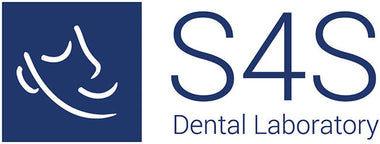WHY ARE MY TEETH CHIPPING?
Noticing chips or small fractures in your teeth can be frustrating, especially if you’re unsure what’s causing them.
While teeth are incredibly strong, they aren’t indestructible. Everyday habits, underlying dental conditions, and even diet can contribute to wear and tear, leading to chips and cracks.
Some cases are purely cosmetic, while others may indicate a more serious issue that requires professional attention.
Here's why your teeth might be chipping, and what you can do to help prevent it.
Common causes of chipped teeth
Understanding why your teeth are chipping is important as it can help you prevent further damage and ensure your teeth stay strong and healthy.
- Bruxism (teeth grinding and clenching)
- Weak or worn enamel
- Accidents and trauma
- Biting hard objects
- Misaligned bite
- Tooth decay
Bruxism: A leading cause of chipped teeth
Bruxism, or teeth grinding, is one of the most common reasons for chipped and fractured teeth. Many people grind their teeth without realising it, particularly during sleep.
The constant pressure wears down enamel, making teeth more vulnerable to damage. Other symptoms of bruxism include jaw pain, headaches, and tooth sensitivity.
If left untreated, bruxism can lead to more severe dental issues, including worn-down teeth, gum recession, and TMJ disorders.
A custom-made occlusal splint (also known as a nightguard) can help protect your teeth from further chipping.
How the SCi can help prevent teeth chipping
If your teeth are chipping regularly, it’s important to address the cause before further damage occurs.
The SCi (Sleep Clench Inhibitor) is a small, comfortable dental appliance designed to prevent the damaging effects of bruxism.
It slots between the upper and lower front teeth, reducing the ability to clench and grind while you sleep.
Don't ignore your chipped teeth
If your teeth are chipping regularly, it’s important to address the cause before further damage occurs.
Whether it’s bruxism, a misaligned bite, or weakened enamel, a dental professional can help determine the best treatment.
Preventative measures such as wearing a protective appliance like the SCi, maintaining strong enamel through good oral care, and seeking orthodontic treatment to fix a misaligned bite can all contribute to healthier, more resilient teeth.
If you suspect bruxism is affecting your teeth, ask your nearest SCi dentist to help you protect against further chipping.

